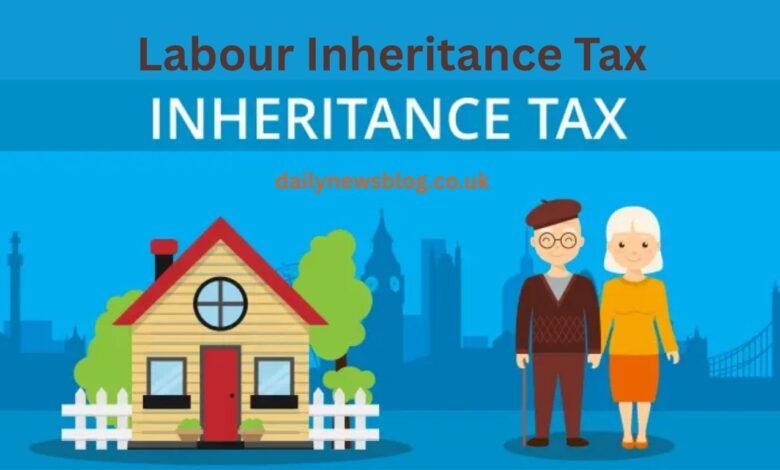Labour Inheritance Tax: 7 Shocking Facts You Need to Know Today

Inheritance tax is no longer just a concern for the super-rich. With rising house prices and shifting political priorities, even modest estates can fall into the tax net. Labour inheritance tax proposals have sparked widespread debate as families worry about passing on their wealth. In this detailed guide, we’ll uncover seven shocking facts about Labour inheritance tax and explore how it could affect your estate, and what you can do about it.
What Is Labour Inheritance Tax?
Labour inheritance tax refers to potential reforms proposed or supported by the Labour Party to address wealth inequality. These reforms could involve lowering tax thresholds, tightening reliefs, or introducing new measures to ensure wealth is distributed more evenly. The aim would be to generate additional revenue for public services and reduce intergenerational wealth gaps. However, this could also mean higher tax liabilities for families who have accumulated assets over time, particularly through property ownership.
Why Labour Inheritance Tax Is Making Headlines
Labour’s focus on wealth redistribution has made Labour’s inheritance tax a hot topic. The proposals come at a time when more estates than ever are liable for inheritance tax due to decades of house price growth. Middle-income families, once considered below the threshold, now find themselves at risk of leaving behind a significant tax bill. There’s also concern about how these changes could affect family-run businesses, farms, and properties held for generations.
What’s more, commentators are warning that reforms might include a more aggressive approach to lifetime gifts and trusts, which are currently used for estate planning. The fear of retroactive changes to these planning tools is adding to the anxiety.
Who Could Be Affected by Labour Inheritance Tax Changes?
Impact on Families With Modest Wealth
It’s a misconception that inheritance tax only targets the wealthy. Many families with average incomes but valuable properties — particularly in London and the South East — could see their estates affected under new Labour inheritance tax rules. Even those who have simply benefited from rising property values could find their heirs facing unexpected bills.
Impact on Professionals and Entrepreneurs
Entrepreneurs and professionals who have built wealth through hard work could also find their estates at risk. Labour inheritance tax proposals might reduce business property relief, making it harder for small business owners to pass their enterprises to the next generation without financial penalty.
Impact on Multi-Generational Households
Multi-generational households where grandparents, parents, and children co-own or share property could face additional complexities. If thresholds are lowered, these households might be forced to sell or mortgage their homes to cover tax liabilities — an emotional and financial strain during a difficult time.
Key Concerns About Labour Inheritance Tax
Potential Clampdown on Trusts
Trusts have long been a legitimate way for families to structure wealth across generations. However, Labour inheritance tax reforms could target these structures, imposing tighter rules or higher tax charges to limit their effectiveness.
Possible Introduction of a Lifetime Gift Tax
While inheritance tax currently focuses on wealth transferred after death, Labour could propose a tax on lifetime gifts above a certain limit. This would affect parents and grandparents who gift property, money, or valuable items to loved ones during their lifetime as part of estate planning.
Uncertainty Leading to Poor Planning
The uncertainty surrounding Labour inheritance tax proposals could discourage people from planning, potentially resulting in higher tax bills. Without clear rules, families may delay making decisions, only to be caught out by new legislation.
How to Prepare for Potential Labour Inheritance Tax Changes
Start Estate Planning Early
The earlier you begin estate planning, the more options you have to minimise potential inheritance tax liabilities. Early action allows you to take advantage of existing allowances and exemptions before possible Labour inheritance tax reforms come into effect.
Diversify Your Assets
Holding all your wealth in property may increase your risk under Labour inheritance tax changes. Diversifying into pensions, ISAs, or business structures could help spread risk and take advantage of different tax treatments.
Work With a Professional Adviser
With potential Labour inheritance tax changes on the horizon, professional advice has never been more important. An experienced estate planner or tax adviser can help you navigate the shifting landscape and put protections in place.
Open Conversations With Family
Open discussions about inheritance plans can ensure everyone is prepared. Understanding the potential impact of Labour inheritance tax reforms helps avoid surprises and ensures family members know what steps to take when the time comes.
Expert Insights on Labour Inheritance Tax
Tax experts believe Labour inheritance tax reforms could fundamentally reshape the way wealth is transferred in the UK. Some warn that unless people act now, they could find existing plans invalidated or less effective under new rules. Experts advise reviewing wills, trusts, and estate plans regularly, as well as keeping informed about potential Labour policy changes.
Some professionals also suggest that families should consider philanthropic giving as a way to reduce their taxable estate while supporting causes that matter to them.
FAQs About Labour Inheritance Tax
What is the inheritance tax in Pakistan?
Pakistan does not impose a formal inheritance tax. However, other taxes like stamp duty, capital gains tax, and capital value tax may apply during the transfer of inherited property or assets.
What is the UK-Pakistan inheritance tax treaty?
There is no UK-Pakistan inheritance tax treaty. This means that if a person holds assets in both countries, inheritance tax rules from both jurisdictions could apply depending on factors like domicile and residency.
What is the new inheritance law in Pakistan?
The new inheritance law in Pakistan streamlines the process of obtaining succession certificates and letters of administration. The aim is to reduce delays and disputes through digitalisation and clearer processes for heirs.
What is the 236K tax in Pakistan?
The 236K tax is a withholding tax applied to property transactions in Pakistan. This tax is deducted at source during the transfer or sale of immovable property, including, in some cases, inherited properties when ownership is formalised.
What is the rule of inheritance?
In the UK, inheritance tax applies at 40% on estates over the £325,000 threshold, with certain exemptions and allowances. In Pakistan, inheritance is governed by Islamic laws, which set out specific shares for heirs based on their relationship to the deceased.
Conclusion
As the political landscape evolves, Labour inheritance tax proposals are becoming a major consideration for families of all wealth levels. What might have once been seen as a concern only for the wealthy is now relevant for many ordinary families who have worked hard to build and protect assets. With potential reforms on the horizon, now is the time to review your estate plans, seek professional advice, and take steps to protect your legacy. Proactive planning today could save your family from significant financial burdens tomorrow.




